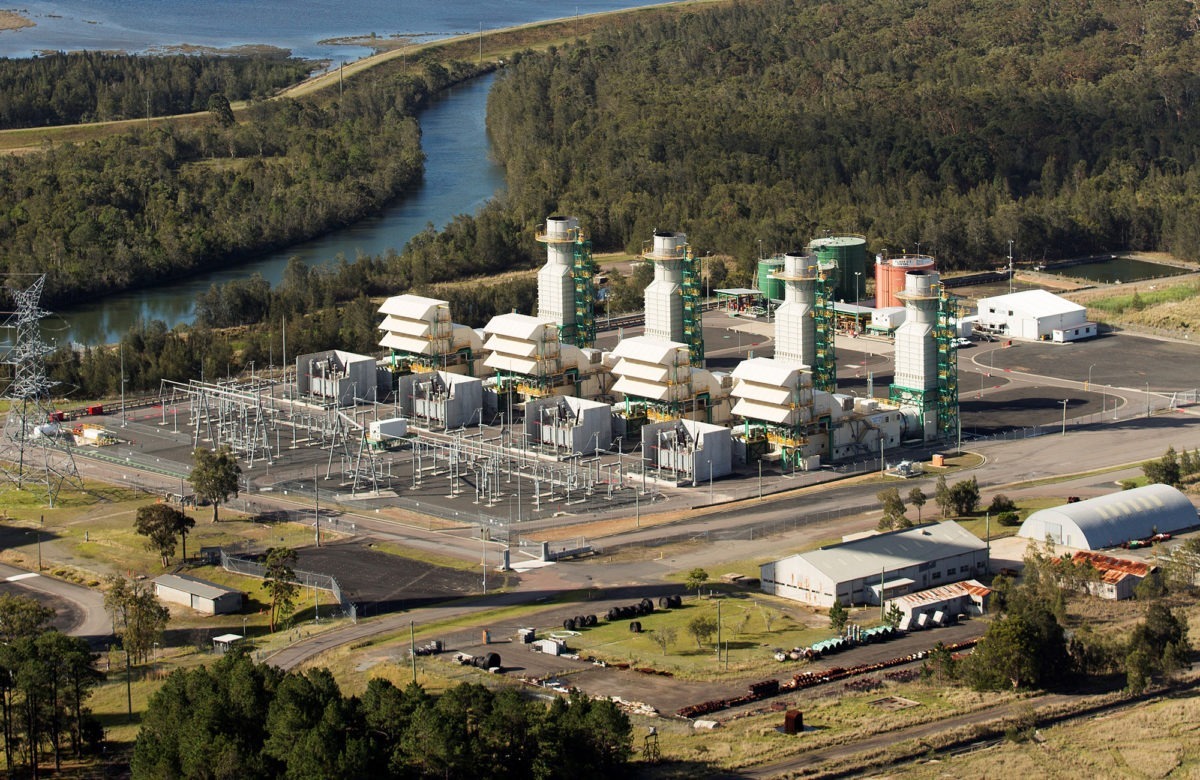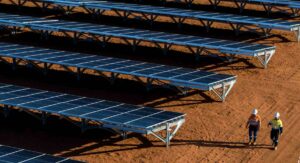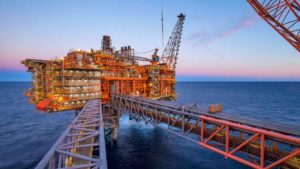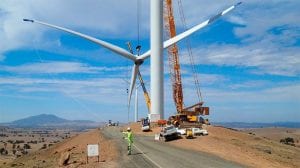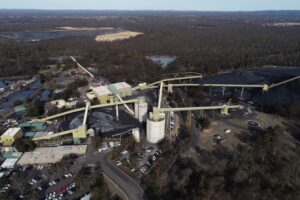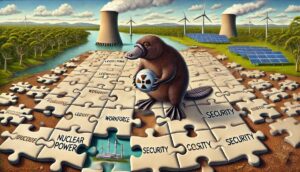The NSW planning department has cleared the way for the Morrison government’s planned 660MW gas generator in the Hunter region, granting the project planning approval.
It will deliver an early Christmas present for the Morrison government, which plans to spend around $610 million constructing the gas generator, through the federal government-owned Snowy Hydro, that it says is necessary to maintain “reliable and affordable” supplies of power.
The NSW planning department notified stakeholders on Monday that planning minister Rob Stokes had signed off on the project, which had enjoyed a fast-tracked assessment process thanks to a “critical state significant infrastructure” designation.
“The Department is writing to inform you that the Minister has Approved the application for the Hunter Power Project (Kurri Kurri Power Station),” the message to stakeholders says.
The stakeholder message was sent while no additional information was available through the planning department website, suggesting that it had inadvertently revealed the outcome of the planning assessment early.
It could be one of Stokes’ last acts as the NSW planning minister, as he is set to be replaced by Anthony Roberts, who returns to the planning portfolio following a cabinet reshuffle announced by premier Dominic Perrottet on Monday.
Stokes welcomed the economic stimulus the project would generate, but also suggested the Kurri Kurri project may ultimately operate using hydrogen fuel.
“It will also inject $600 million into the State’s economy and create up to 250 new construction jobs in the Hunter, so on balance it was decided that the project should be approved,” Stokes said in a statement.
“We’ve also required Snowy Hydro to prepare and implement a Net Zero Power Generation Plan to progressively move towards achieving net zero greenhouse gas emissions. This may include using hydrogen gas, which would be subject to further planning assessment.”
The Kurri Kurri project has attracted significant controversy, with several energy market experts questioning both the need and the financial viability of a new gas generator that may operate as little as 2 per cent of the time.
The business case for the project makes clear that it is primarily predicated on operating as a peaking generator, operating only when wholesale electricity prices spike to extreme highs.
It will also operate on more emissions-intensive diesel fuel during the first six months of its operation, as the connection to the gas network is completed.
This has raised questions about the suitability of the plant, given it will be a new source of greenhouse gas emissions at a time when large-scale battery technologies are becoming an increasingly competitive alternative for meeting peak demand, without the need to burn fossil fuels.
“The Kurri Kurri gas power station simply isn’t needed. Energy analysts and economists agree it will raise electricity prices for residents and businesses, not lower them,” member of the Climate Council and energy market expert Dr Madeline Taylor said.
“As renewable energy and storage technologies become cheaper by the day, this short-sighted investment in a new gas-fired power station, built with taxpayer money, makes no sense from an energy or economic perspective, and will likely end up as a stranded asset.”
The Morrison government decided to directly intervene in the electricity market by building the Kurri Kurri plant, after issuing a call to the electricity sector to commit to building at least 1,000MW of new ‘dispatchable’ generation capacity. The Morrison government said that demand had not been met, despite several large-scale battery storage projects coming forward.
The decision to build the plant at the site of the former Kurri Kurri aluminium smelter has also attracted significant scrutiny. Land earmarked for the Kurri Kurri power station was purchased from a group that included Liberal party donor and property developer Jeff McCloy, whose dealings with the party were the subject of an ICAC investigation. That investigation led to the resignation of two Liberal state MPs, having received prohibited donations from the property developer.
Snowy Hydro CEO Paul Broad was forced to defend the decision to acquire the land from the consortium led by McCloy, denying that there had been a conflict of interest, after revealing in a senate estimates hearing that he had known McCloy for over 40 years, a connection that dates back to their time at university.
The Climate Council slammed the NSW planning decision, both for approving the new gas-fired generator as well as announcing the decision in the week before Christmas.
“A lump of coal is known as a dud gift, but this year the government has forced an entire gas-fired power station into every Australian’s Christmas stocking, and on top of that, it’s making us pay for it,” Climate Council senior researcher Tim Baxter said.
“Approving Kurri Kurri is an all round dismal move for Australians at a time when the rest of the world is reducing greenhouse gas emissions and cashing in on the clean job and economic opportunities of a net zero future.”
The Morrison government was recently forced to provide Snowy Hydro with a loan of an undisclosed amount, as the government-owned entity is undertaking work on both the Kurri Kurri plant and the Snowy 2.0 expansion, while at the same time seeing its revenues dented by falling electricity prices.

